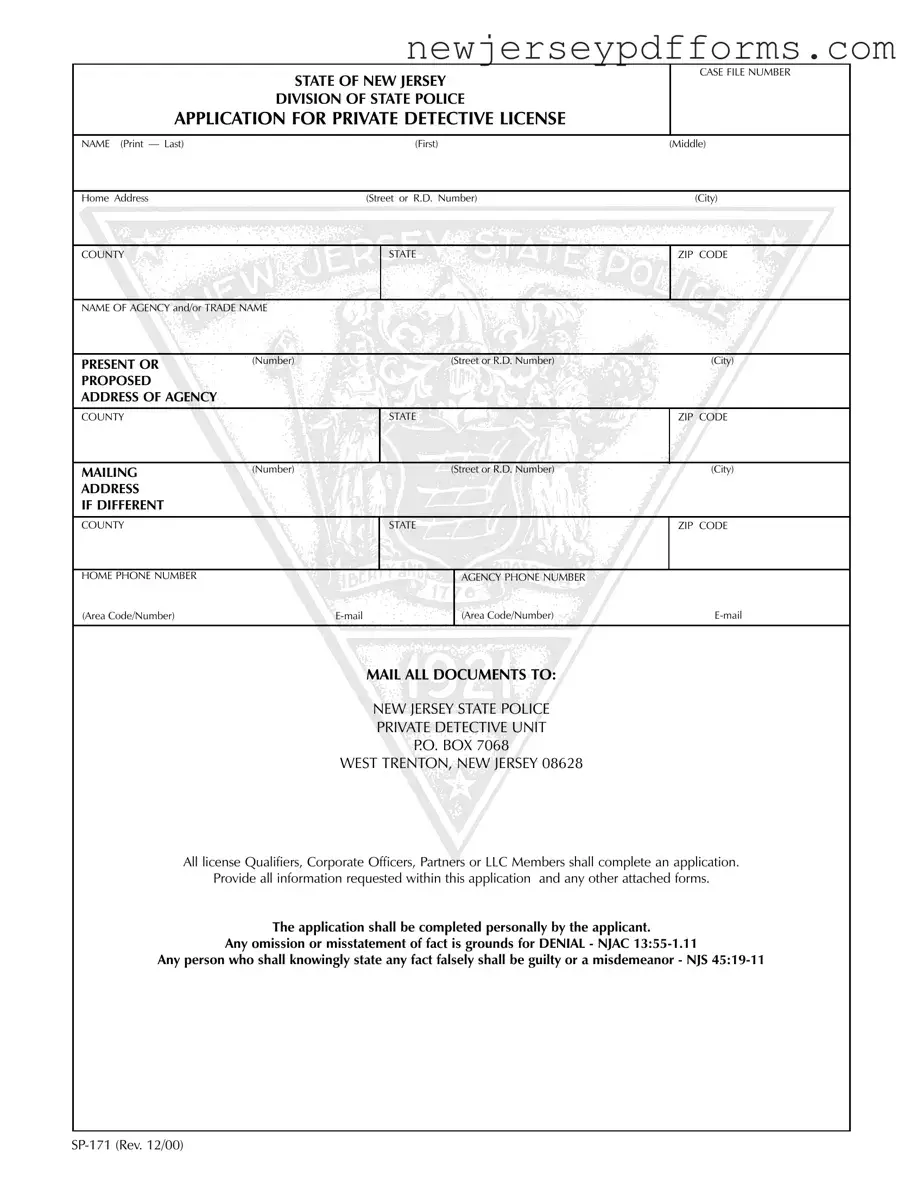What is the New Jersey SP 171 form used for?
The New Jersey SP 171 form is an application for a private detective license. It is required for individuals or entities wishing to operate as private detectives in New Jersey. The form collects essential information about the applicant, including personal details, employment history, and references, to ensure that only qualified individuals receive a license.
Who needs to complete the SP 171 form?
All individuals seeking a private detective license in New Jersey must complete the SP 171 form. This includes license qualifiers, corporate officers, partners, and members of LLCs. Each applicant must provide personal information and details relevant to their qualifications, as any omissions can lead to denial of the application.
What information is required on the SP 171 form?
The form requires a variety of personal and professional information. Applicants must provide their name, address, contact information, and details about their employment history. Additionally, applicants must disclose any previous applications for a private detective license, any criminal convictions, and any mental health treatment. Photographs and references from reputable citizens are also required.
How should the SP 171 form be submitted?
Once completed, the SP 171 form and all required documents should be mailed to the New Jersey State Police Private Detective Unit at the specified address. It is important to ensure that all information is accurate and complete before submission, as any discrepancies can result in delays or denials.
What happens if I provide false information on the SP 171 form?
Providing false information on the SP 171 form can have serious consequences. If an applicant knowingly states any fact falsely, they may be charged with a misdemeanor. Additionally, any omissions or misstatements can lead to the denial of the application, meaning that honesty is crucial throughout the process.
What are the requirements for references on the SP 171 form?
Applicants must provide five references who are reputable citizens, unrelated to the applicant, and over the age of 21. Each reference must complete their information on the form and provide a signature to attest to the applicant's character and competency for licensing as a private detective.
Can I use a trade name for my private detective agency?
Yes, you can use a trade name for your private detective agency, but you must obtain authorization from the Superintendent of the New Jersey State Police. The trade name must not be similar to that of another licensee or public agency to avoid confusion. Proper filing with the County Clerk or the Department of Treasury is also required.
What if I have been denied a private detective license in the past?
If you have been denied a private detective license in New Jersey or any other state, you must disclose this information on the SP 171 form. Providing full details about the denial is essential, as this information will be considered during the review of your application. Transparency is key to ensuring a fair evaluation.

